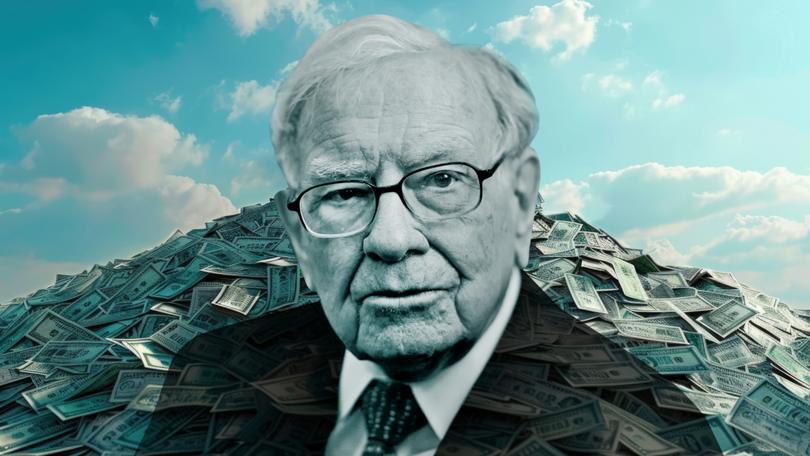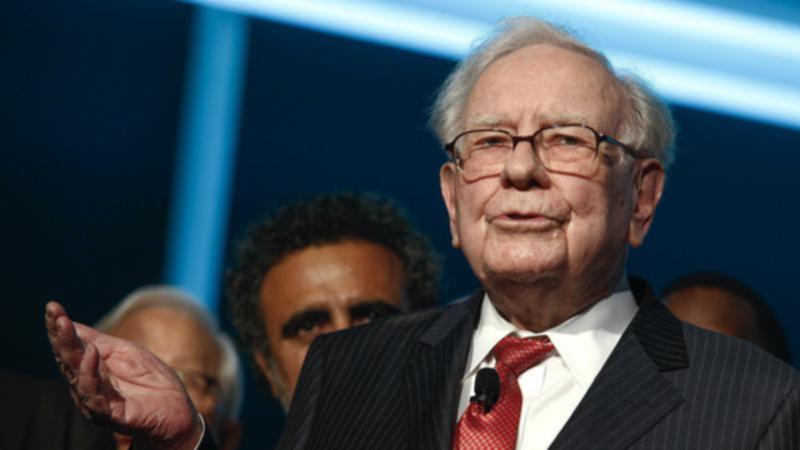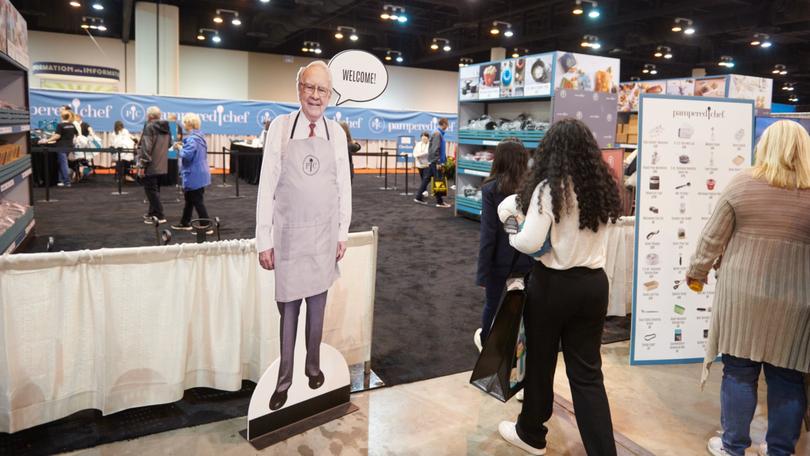THE ECONOMIST: Is hoarding cash like Warren Buffett a good strategy or simply stagnation for businesses?
Months before the stockmarket slide, the billionaire was cashing out equities, but hoarding may not be the best option for corporations

Warren Buffett must be feeling smug right now. Months before American stock-markets started sliding from record levels in late February, as investors began to question US President Donald Trump’s stewardship of the world’s largest economy, the nonagenarian billionaire was cashing out of equities.
In 2024 his industrial conglomerate, Berkshire Hathaway, sold a net $US134 billion ($212b) of stocks, including two-thirds of its $US174b stake in Apple. By the end of March the S&P 500 index of America’s biggest companies was 9 per cent down from its peak. So was the iPhone-maker. Berkshire, meanwhile, was sitting pretty on a 10 per cent gain — and a pile of cash to make Scrooge McDuck blanch. Converted into $US100 bills, its $US334b in liquid assets would fill 1,900 king-size mattresses. The internet buzzed with memes about preternatural market timing.
The Oracle of Omaha was looking even more oracular — not to mention comfy on all that bedding — after Mr Trump launched an unprovoked trade world war on April 2. The next day Berkshire lost just 1.5 per cent of its value, compared with 5 per cent for the S&P 500 and another 9 per cent for Apple. In the chaotic days that followed Mr Buffett took a knock along with everyone else, then recovered after Mr Trump paused his “reciprocal tariffs” on April 9 — but with less volatility. More important, whereas the market as a whole is still 11 per cent below its all-time high, Berkshire is up by 7 per cent since then, and just shy of its record market capitalisation of $US1.2 trillion.
Sign up to The Nightly's newsletters.
Get the first look at the digital newspaper, curated daily stories and breaking headlines delivered to your inbox.
By continuing you agree to our Terms and Privacy Policy.
A cushion is handy in uncertain times, and times have seldom been this uncertain. Many investors concluded as much amid the initial post-tariff mayhem, offloading stocks and notionally safe-haven assets at the same time. Perhaps they stuffed the proceeds into mattresses. Should bosses be apeing Mr Buffett and building cash buffers, too?
Not so fast. Not every cash-rich business has withstood the buffeting of recent months as well as Mr Buffett’s firm. True, Amazon and Alphabet, which among non-financial firms have the world’s third- and fourth-biggest cash piles (roughly $US100b apiece), performed about as well as Berkshire in the past week. But both are still down by around 15 per cent since markets peaked. Liquid assets worth $US75b or so did not stop Toyota and TSMC, giant Asian manufacturers of cars and semiconductors respectively, from being clobbered since the start of the year. CITIC, a Hong Kong-listed Berkshire wannabe, boasts $US249b in cash and a measly market capitalisation of $US31b (this is partly explained by a balance-sheet that is, in part, bank-like).
A back-of-the-envelope analysis suggests zero correlation between the absolute size of a company’s cash position and its share price, be it over the past week or the past year. Return on capital or return on equity also show no link to cash-richness.
The same is true if you look at cash relative to revenues. On that measure Berkshire ranks 56th among the world’s 1100 or so most valuable listed companies (again, excluding finance). The highest spot is claimed by Insmed, a $US12b biotechnology company with enough cash to cover four years of sales and no shareholder returns to speak of so far in 2025. The top ten include Prosus, a technology investment firm, and Grab, a Singaporean digital conglomerate, as well as CITIC. All have seen better days.
There is a hint of a relationship between a company’s cash-to-sales ratio and its compound annual revenue growth over the past five years. But, with a correlation co-efficient of 0.25 (where one is perfect alignment and zero is none), it is tenuous at best.
Many corporate stars of the past few years are anti-Scrooges. Nvidia, the $US2.8 trillion semiconductor giant whose chips power the artificial-intelligence revolution, has liquid assets equivalent to a middling 33 per cent of revenues. Novo Nordisk, the $US265b Danish maker of hit weight-loss drugs, is in the bottom third on this measure, at 9 per cent. Both put capital to hyperefficient use, returning 71 and 46 per cent, respectively, outshining all but a handful of the 1100 companies in our sample.
No self-evident benefits to a cash fetish present themselves, in other words. The drawbacks, by contrast, are more obvious. The biggest of these is the opportunity cost. Clinging on to liquid assets means the money is not put to more productive use. Berkshire’s pile is two and a half times as large as it was five years ago. Its return on capital has declined in that period. Grab’s return on capital is negative. Prosus shares trade at around a 40 per cent discount to the net value of its assets.

At least Prosus has the good grace to hand some of the unspent money back to shareholders. In the past five years it has paid $US26b in dividends and share repurchases. CITIC, too, has been generous with its owners, forking out an average annual dividend of $US1.8b. Grab, which went public only in 2021, may be excused for handing out just $US226m so far, all of it last year.
The same cannot be said of Mr Buffett, who has not paid a dividend since 1967. Lately he has also become increasingly stingy with buy-backs, which declined from around $US25b a year in 2020 and 2021 to less than $US3b in 2024. This contrasts with Nvidia and Novo Nordisk, which despite reinvesting in innovative technology have found it in themselves to reward shareholders. Novo Nordisk paid out $US38b over the past five years. Nvidia showered investors with $US41b last year alone.
Don’t go to the mattresses
Mr Buffett’s cash buffer may look smart in a world gripped by Trumpian turmoil. It nevertheless seems almost churlish of him to insist on holding so much insurance, for that is what such a buffer amounts to. Does Berkshire really need roughly as much liquidity as Standard Chartered and NatWest, two of the world’s big banks? Anyone can pad a mattress with dollar bills. A legendary investor ought to have cleverer ideas.
Originally published as Does every business need a cash pile like Warren Buffett’s? Not necessarily
